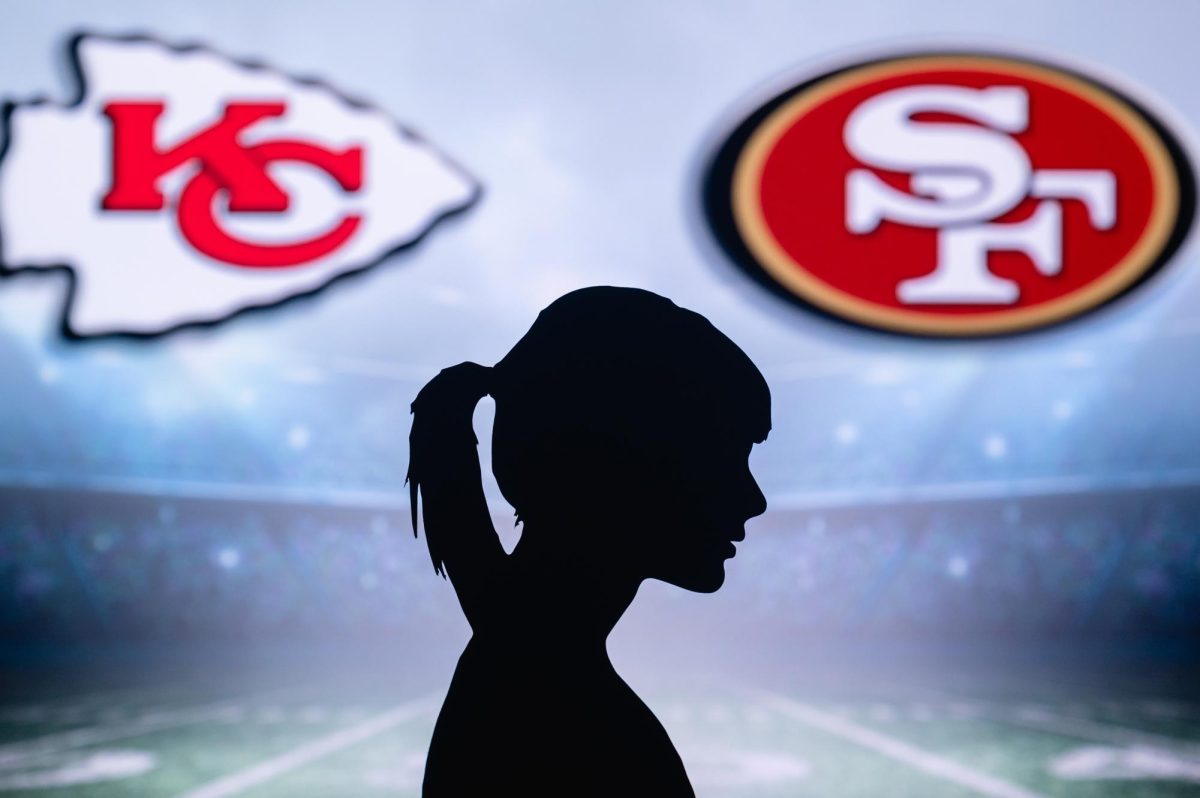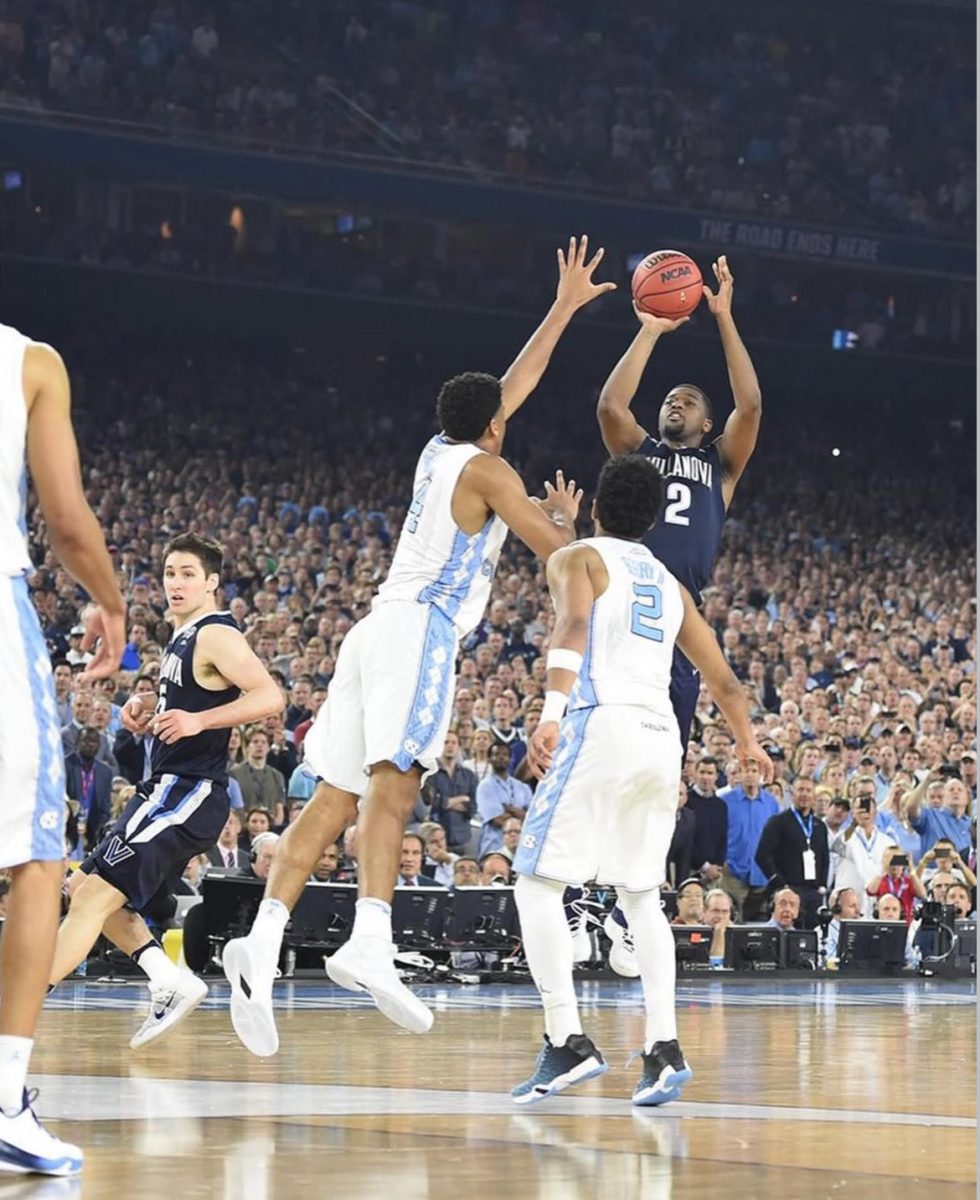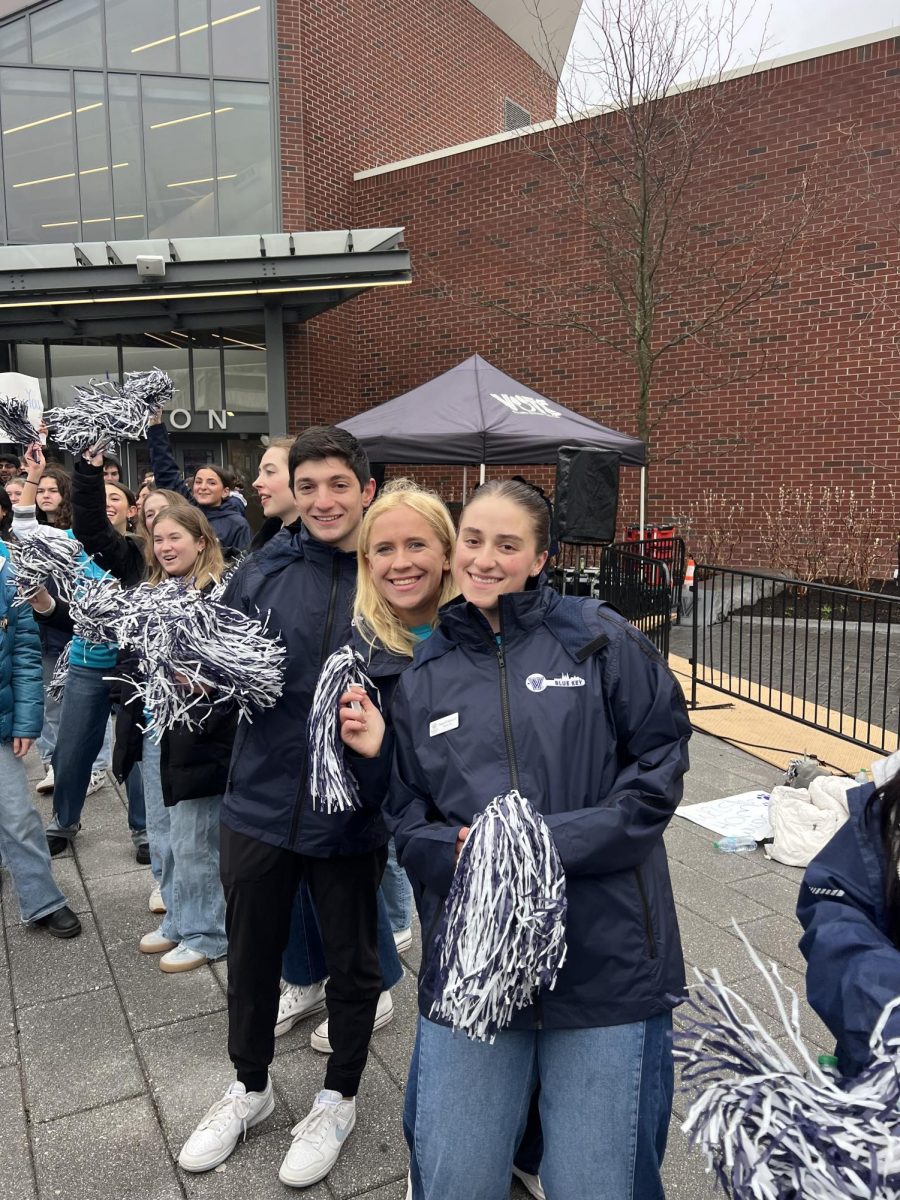“Taylor Swift is ruining football,” loudly groaned a group of men who I couldn’t, to my grave disappointment, help but overhear as I passed them in Bartley Hall. Whether they were moaning about her exaggerated NFL screen time or conjectured role in the fate of the 2024 Super Bowl, I didn’t stick around to find out. Love it or hate it, people are obsessed with Taylor Swift’s recent appearances on the NFL, and the NFL is undeniably benefiting from the attention.
MarketWatch, a business and data analytics company, was one of many to investigate how Swift’s association with the NFL has boosted the league’s brand value and viewership. Swift was only shown on the air seven times in her attendance of 12 Chiefs games thus far, but that was enough to revolutionize female viewership numbers. The singer’s exposure incited a 53% increase among those aged 12 to 17, a 34% rise in those over 35 and a 24% rise in the 18 to 24 demographic.
The monetary benefits and popularity surge associated with the singer’s exposure beg the question: did support from Swifties sabotage the Super Bowl?
The singer’s popularity and influence are unequivocal. Her dedicated fan base of “Swifties” have demonstrated their loyalty in the unprecedented success of her Eras tour, her billion-dollar self-worth and her 12 Grammy Awards. Time and time again, Swift has again dominated pop-culture headlines in her minute “involvement” with the 2024 Super Bowl.
Kelce/Swift Super Bowl wedding proposal prop bets have already appeared on online sportsbooks.
Recently, Swift’s popularity has sparked a series of accusations and controversies that extend beyond the realm of pop culture into the realm of political speculation. In early January, Jesse Waters of Fox News alleged Swift to be a “psy-op” used by the Pentagon to influence public opinion. Heavily implying nefarious government intervention in her achievements, Watters suggested that her success was cause for suspicion. While this has since been disproved, other accusations have populated in its place. Some theories on social media go so far as to say the trending “#rigged” event just serves to increase Swift’s popularity and influence for her anticipated endorsement of Biden in the upcoming 2024 presidential election.
Is there merit to this theory? It’s a lot more fun and socially casual to debate than the damaging nature of its possible chauvinistic undertone. Sure, annual claims of cheating in the Super Bowl are common among disgruntled fans in denial. But how often are they extrapolated to the implied stealing of a presidency?
Labeling a female international icon as an international manipulator within a predominantly male fanbase is regressive. Perpetuating sexist stereotypes and contributing to harmful gender biases, this media-promoted line of discourse reinforces the commonly demonized image of powerful women as manipulative. To debate she isn’t the alleged “manipulator” in this theory would be equally desecrating. It would be to undermine the accomplishments of a powerful woman to suggest she be a pawn, attributing her achievements to the strategic benefit of a traditionally patriarchal system. Innocent of misogynistic motivations or not, these theories are opportunities, for men and women alike, to investigate their internalized biases, accordingly preventing unconscious discrimination and creating positive change for future generations.
So, how did the Chiefs make it to the Super Bowl? Was it Swift or skill? Villanova seems to be divided. But I think I speak for most of Villanova when I say, to stay on the safe side, I wish she had stayed true to her Philly roots and dated a tight end on the Eagles.






